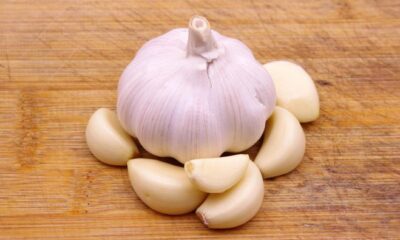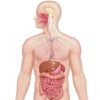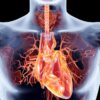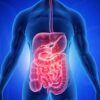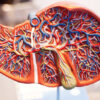The Cardiac Diet Plan: Heart Health Starts on Your Plate
When it comes to maintaining a healthy heart, the food you eat plays a pivotal role. A balanced diet rich in heart-healthy foods can help prevent heart disease, manage cholesterol levels, reduce inflammation, and improve overall cardiovascular health. This is where the cardiac diet plan comes in. Tailored to support heart health, this diet focuses on eating nutrient-dense, low-sodium, and healthy-fat-rich foods while limiting processed foods and unhealthy fats.
If you’re looking to take charge of your heart health, adopting a cardiac diet can be a powerful tool. Here’s everything you need to know about the cardiac diet, including what to eat, what to avoid, and how it benefits your heart.
What is a Cardiac Diet Plan?
A cardiac diet plan is designed to reduce risk factors for heart disease, including high cholesterol, high blood pressure, and obesity. It emphasizes the consumption of foods that support healthy blood vessels, regulate cholesterol, and reduce inflammation. By focusing on heart-healthy foods, this diet helps improve circulation, lower the risk of a heart attack, and enhance overall cardiovascular function.
While there’s no “one-size-fits-all” cardiac diet, the foundation of the plan revolves around whole, minimally processed foods, healthy fats, fiber-rich carbohydrates, and lean proteins. A cardiac diet can be particularly helpful for individuals with existing heart conditions, but it’s also an excellent preventive strategy for anyone looking to maintain a healthy heart.
Key Principles of a Cardiac Diet
To create an effective cardiac diet plan, you’ll need to follow some basic principles:
- Focus on Healthy Fats Not all fats are created equal. While trans fats and saturated fats found in processed foods can clog your arteries and raise your cholesterol levels, healthy fats help support heart health. Focus on:
- Monounsaturated fats: Found in olive oil, avocados, and nuts.
- Polyunsaturated fats: Present in fatty fish like salmon, walnuts, and flaxseeds.
- Omega-3 fatty acids: These heart-boosting fats are found in fatty fish (like salmon, mackerel, and sardines), flaxseeds, chia seeds, and walnuts. Omega-3s can reduce inflammation and lower triglyceride levels, which are important for heart health.
- Increase Fiber Intake Dietary fiber is essential for a healthy heart. It helps reduce cholesterol levels, stabilize blood sugar, and improve digestion. Aim to consume a variety of fiber-rich foods such as:
- Whole grains (oats, quinoa, barley, brown rice)
- Vegetables (leafy greens, broccoli, carrots, sweet potatoes)
- Fruits (berries, apples, pears, citrus fruits)
- Legumes (lentils, chickpeas, black beans, kidney beans)
- Limit Sodium and Processed Foods Excessive sodium intake is linked to high blood pressure, which is a major risk factor for heart disease. Reducing your salt intake can help prevent fluid retention, lower blood pressure, and improve heart health. To achieve this:
- Avoid processed and packaged foods, which are often high in sodium.
- Cook fresh meals using herbs and spices for flavor instead of salt.
- Opt for fresh fruits and vegetables, as canned versions may contain added sodium.
- Choose low-sodium or sodium-free alternatives when possible (such as low-sodium broth or seasoning mixes).
- Reduce Red Meat and Processed Meats Red meat, especially fatty cuts, and processed meats (like bacon, sausages, and deli meats) are high in saturated fats and sodium. These can raise bad cholesterol (LDL) and increase the risk of cardiovascular disease. Instead, focus on lean protein sources such as:
- Skinless poultry (chicken, turkey)
- Plant-based proteins (tofu, tempeh, legumes)
- Fish and seafood (rich in heart-healthy omega-3s)
- Lean cuts of meat (such as sirloin or tenderloin)
- Limit Refined Sugars and Carbohydrates Excess sugar, particularly from sugary drinks and snacks, can contribute to obesity, high blood pressure, and insulin resistance—all of which increase the risk of heart disease. Refined carbohydrates, like white bread, pasta, and pastries, can also spike blood sugar levels. Instead, choose:
- Whole grains (whole wheat bread, brown rice, quinoa)
- Fruits and vegetables for natural sweetness
- Healthy snacks like nuts, seeds, and unsweetened yogurt
- Hydrate with Water Staying hydrated is crucial for overall health, including heart health. Water helps maintain blood circulation, regulate body temperature, and support kidney function. Limit sugary beverages like soda, energy drinks, and excessive caffeine, as they can contribute to dehydration, increased heart rate, and high blood sugar.
Foods to Include in a Cardiac Diet Plan
A well-balanced cardiac diet plan focuses on nutrient-dense, heart-healthy foods. Here’s a list of some of the best foods to include:
- Fruits and Vegetables
- Leafy greens: Spinach, kale, and Swiss chard are rich in vitamins and antioxidants that support heart health.
- Berries: Blueberries, strawberries, and raspberries contain powerful antioxidants that help fight inflammation and reduce oxidative stress.
- Tomatoes: High in lycopene, tomatoes are great for heart health and help reduce cholesterol levels.
- Avocados: Packed with monounsaturated fats and potassium, avocados support healthy cholesterol and blood pressure levels.
- Whole Grains
- Oats: Rich in soluble fiber, oats help lower LDL cholesterol and regulate blood sugar.
- Brown rice: Unlike white rice, brown rice retains its fiber and is a healthier choice for managing blood sugar levels.
- Quinoa: A complete plant-based protein that contains all nine essential amino acids.
- Healthy Fats
- Olive oil: A great source of monounsaturated fats, olive oil helps improve blood cholesterol levels.
- Nuts and seeds: Almonds, walnuts, flaxseeds, and chia seeds provide omega-3 fatty acids, fiber, and antioxidants.
- Fatty fish: Salmon, mackerel, and sardines are rich in omega-3s, which help reduce inflammation and lower triglycerides.
- Legumes
- Beans: Kidney beans, chickpeas, black beans, and lentils are high in fiber, protein, and antioxidants, making them excellent for heart health.
- Peas: Rich in fiber, peas help regulate cholesterol and blood sugar.

- Lean Protein
- Skinless poultry: Chicken and turkey are lean sources of protein that provide essential nutrients without excessive saturated fat.
- Tofu and tempeh: Plant-based proteins that are heart-healthy and low in saturated fat.
- Fatty fish: Rich in omega-3 fatty acids, which reduce inflammation and improve heart health.
Sample Cardiac Diet Meal Plan
Breakfast:
- Oatmeal topped with fresh berries, chia seeds, and a drizzle of honey.
- A glass of water or unsweetened green tea.
Lunch:
- Grilled chicken breast salad with mixed greens, tomatoes, avocado, and a vinaigrette made with olive oil and balsamic vinegar.
- A side of quinoa or whole grain bread.
Snack:
- A handful of almonds or walnuts.
- A piece of fruit like an apple or pear.
Dinner:
- Baked salmon with a side of roasted sweet potatoes and steamed broccoli.
- A small serving of brown rice or whole wheat couscous.
Dessert:
- A small bowl of mixed berries or a piece of dark chocolate (70% cocoa or higher).
Benefits of a Cardiac Diet
Adopting a heart-healthy diet offers numerous benefits, including:
- Lower blood pressure: A diet rich in potassium, fiber, and healthy fats can help regulate blood pressure.
- Reduced cholesterol levels: Consuming foods high in fiber and healthy fats can lower LDL cholesterol and raise HDL cholesterol.
- Weight management: A balanced diet promotes a healthy weight, reducing the risk of obesity-related heart disease.
- Improved circulation: Nutrient-rich foods improve blood flow and reduce inflammation, promoting overall cardiovascular health.
Final Thoughts
A cardiac diet is more than just a set of food rules—it’s a lifestyle that prioritizes heart health through mindful eating. By focusing on whole, nutrient-dense foods and limiting processed items, you can reduce your risk of heart disease and enjoy long-term health benefits. Whether you’re aiming to prevent cardiovascular problems or manage an existing condition, adopting a heart-healthy diet can be one of the most effective strategies for boosting your heart health and overall well-being.
Remember, before making significant dietary changes, especially if you have an existing health condition, it’s always a good idea to consult with a healthcare provider or nutritionist to ensure the diet is right for your specific needs.









